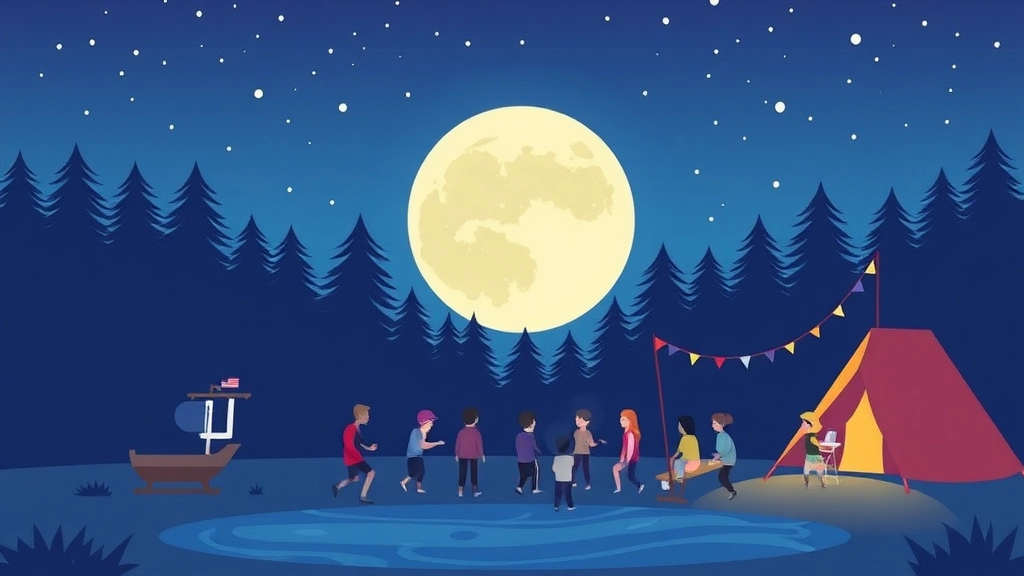How long is summer camp usually? It’s a question that every parent and camper asks as they plan their summer adventures. In this article, we delve into the typical durations of summer camps, comparing the benefits of short and long sessions. We’ll explore factors to consider when choosing the right camp length, such as your child’s personality, family schedule, and financial considerations. Whether you’re a first-time camper or a seasoned pro, this guide will help you make an informed decision.
From the advantages of short-term camps for first-timers to the lasting friendships and skills built at long-term camps, we’ll cover it all. We’ll also discuss how camp durations vary by location and type, and offer tips on balancing camp time with family activities. By the end of this article, you’ll have a comprehensive understanding of how to choose the perfect camp duration for your child, ensuring a summer filled with growth, fun, and unforgettable memories.
Typical Summer Camp Durations: What You Should Know
Alright, let’s talk summer camps. Ever wondered how long these things usually last? It’s a question that pops up a lot for parents and kids alike. You’re probably thinking, “Do I send my kid off for a week, or do I go all-in for the whole summer?” Trust me, you’re not alone in this.
Common Durations
Summer camps come in all shapes and sizes, but here’s a quick breakdown of the most common durations:
- Short-Term Camps: These usually last 1 to 2 weeks. Perfect for first-timers or kids who might get homesick easily.
- Mid-Length Camps: Typically 3 to 4 weeks. A solid option if your child is ready for a bit more independence.
- Long-Term Camps: These can extend from 5 weeks to the entire summer. Great for building lasting friendships and diving deep into activities.
Why It Matters
Choosing the right camp length can make or break your child’s summer experience. Too short, and they might not get the full benefit. Too long, and you risk burnout or homesickness.
Real Concerns
- Homesickness: A lot of parents worry about this, especially for younger kids. Shorter camps can be a good intro to ease them into the idea.
- Cost: Longer camps can get pricey. It’s crucial to balance your budget with the experience you’re aiming for.
- Activities: Some camps pack a lot into a short time, while others spread things out. Make sure you know what’s on offer.
Quick Tips
- First-Timers: Start with a shorter camp to see how your child adapts.
- Older Kids: They might be ready for a longer stint, especially if they’ve been to camp before.
- Special Interests: If the camp focuses on a specific skill or activity your child loves, a longer duration might be worth it.
For more details on selecting the right camp, check out our guide on packing for summer camp and make sure to explore our list of top volleyball summer camps in the USA for specialized experiences.
Comparing Short and Long Summer Camp Sessions
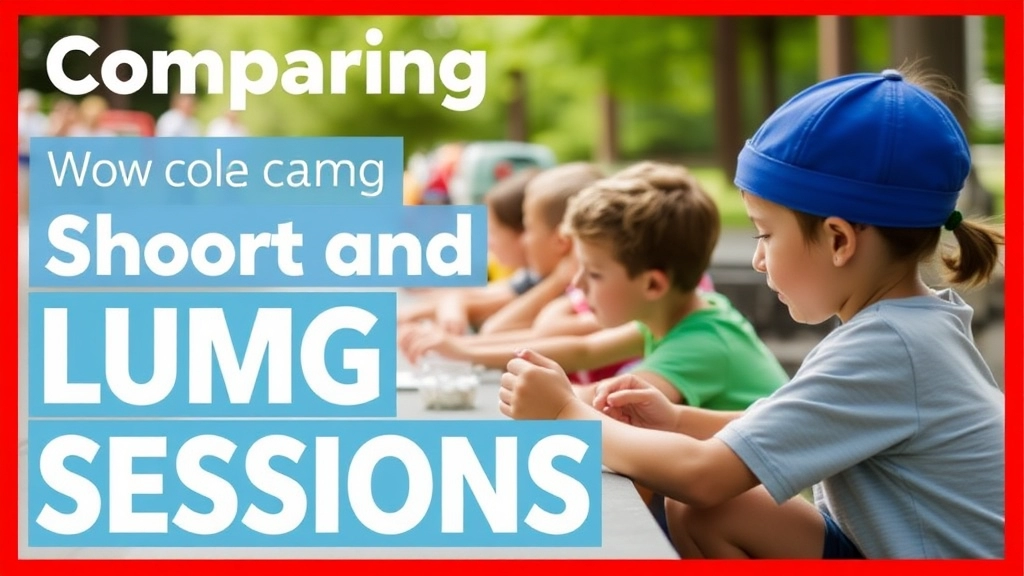
So, you’re wondering whether to send your kid to a short or long summer camp session, huh?
It’s a big decision.
Let’s break it down.
Short Summer Camp Sessions
Why choose short camps?
- Great for first-timers: If your child has never been to camp before, a short stint can be a perfect introduction.
- Less homesickness: Shorter durations mean less time for homesickness to set in.
- Flexibility: They fit into busy summer schedules without taking up the whole holiday.
- Cost-effective: Shorter camps are generally cheaper, which is a big win for your wallet.
Long Summer Camp Sessions
Why go long?
- Deep connections: More time means stronger friendships and deeper bonds.
- Skill-building: Your child can dive deeper into activities and really hone their skills.
- Independence: A longer camp can help your child become more self-reliant.
- Immersive experience: It’s like living in a different world for a while, fully absorbing the camp culture.
The Big Questions
What are your main concerns?
- “Will my child be okay away from home for that long?” For first-time campers, starting with a short camp can ease this worry.
- “Is it worth the cost?” Consider what you’re getting for your money. Long camps often offer more in-depth programs and activities.
- “How will this fit into our summer plans?” Short camps are easier to slot into a busy schedule, while long camps require a bigger time commitment.
Real Talk
Let’s get real for a second.
Imagine you’re at a coffee shop with a mate, talking about this.
Your friend says, “My kid did a short camp last year. Loved it. But now they want more.”
You nod, thinking about how your child might react.
Stories like these help us decide.
The Bottom Line
Short camps are great for testing the waters.
Long camps are perfect for diving deep.
Think about your child’s personality and your family’s summer plans.
That’s the key to making the right choice.
Keyword: summer camp sessions
Factors to Consider When Choosing a Camp Length
Alright, let’s dive into the nitty-gritty of choosing the right camp length for your child. This isn’t just a “pick and go” decision. There are real questions and worries that parents like you face. So, let’s break it down.
What’s Your Child’s Comfort Level?
First up, how comfortable is your child with being away from home? Some kids are ready to pack their bags and wave goodbye for weeks, while others might get homesick after a couple of days. Here’s how to gauge it:
- Previous Experiences: Have they stayed over at a friend’s or relative’s house before? How did they handle it?
- Personality: Are they generally independent or do they cling to your side?
- Age: Younger kids might do better with shorter camps initially.
What Are Their Interests?
Next, think about what your child loves to do. Their interests can heavily influence the ideal camp length:
- Specialised Camps: If your child is into something specific like coding, sports, or arts, a week-long camp might be just right to dive deep without getting bored.
- General Camps: For those who like a mix of activities, longer camps can keep them engaged and excited.
Your Family Schedule
Summer isn’t just about camp. It’s also about family time, vacations, and maybe even some downtime. Consider:
- Family Plans: Do you have a holiday planned? You don’t want camp dates to clash with family trips.
- Other Commitments: Are there other activities or obligations your child has over the summer? Balance is key.
Financial Considerations
Let’s be real, money matters. Camps can be pricey, and the cost often scales with the length of the camp. Here’s what to think about:
- Budget: How much are you willing to spend? Factor in not just the camp fees but also gear, travel, and any extras.
- Value: Sometimes, a longer camp might offer more bang for your buck, especially if it includes more activities and experiences.
The Camp’s Reputation and Safety
Not all camps are created equal. Do your homework:
- Reviews and Testimonials: What do other parents and kids say about the camp?
- Safety Measures: Especially in today’s world, what precautions does the camp take to ensure your child’s safety?
Duration vs. Development
Think about the developmental benefits:
- Short-Term Camps: Great for first-time campers to get a taste without feeling overwhelmed.
- Long-Term Camps: Ideal for building lasting friendships and skills. They offer more time for deeper connections and learning.
Stories from Real Parents
Let’s hear it from Sarah, a mum of two. She says, “My daughter was super excited about camp, but I knew she’d miss home. We started with a 3-day camp. She loved it and now she’s ready for a 2-week adventure this summer. It’s all about baby steps.”
The Benefits of Short-Term Camps for First-Time Campers
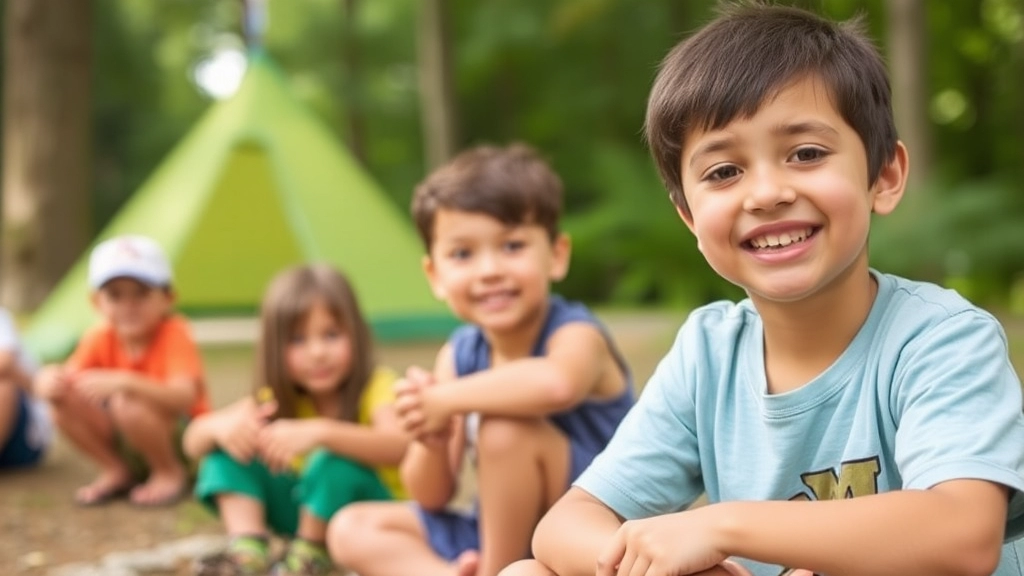
Worried about sending your kid to camp for the first time?
Wondering if a short-term camp is the right move?
You’re not alone.
Short-term camps can be a fantastic introduction for first-time campers.
Here’s why:
Ease Them In
First-time campers can feel overwhelmed.
A week or two at camp is a great way to ease them into the experience.
Less Homesickness
Homesickness is real.
Shorter camps mean less time away from home, which can help kids adjust better.
Test the Waters
Not sure if your kid will like camp?
A short-term camp is a low-risk way to find out.
If they love it, you can consider longer sessions next time.
Build Confidence
A successful short-term camp experience can boost your child’s confidence.
They’ll come back home with stories, new friends, and a sense of accomplishment.
Flexible Schedules
Short-term camps fit easily into busy family schedules.
You can balance camp time with family holidays and other summer activities.
Cost-Effective
Short-term camps are usually more affordable than long-term ones.
You get the benefits without breaking the bank.
Wide Variety
From sports to arts, there are tons of short-term camps to choose from.
Your child can explore different interests without a long-term commitment.
Real Stories
Remember my neighbour’s kid, Sam?
He was super shy and hesitant about going to camp.
His parents chose a one-week camp focused on science experiments.
Sam came back thrilled and now can’t wait for next summer.
Quick Tips
- Start small: Choose a camp that’s just a few days long.
- Local options: Look for camps close to home.
- Talk it out: Discuss the camp activities with your child beforehand.
- Visit the camp: If possible, take a tour before signing up.
Short-term camps are a win-win for first-time campers and their parents.
They offer a taste of independence and adventure without the long-term commitment.
Ready to give it a go?
Your child might just surprise you!
How Long Summer Camps Vary by Location and Type
Alright, let’s dive into something that’s been bugging a lot of parents: how long summer camps vary by location and type. You’re probably wondering, âHow do I pick the right camp for my kid?â or âWhat’s the deal with camp lengths anyway?â Let’s break it down, no fluff, just straight-up useful info.
Why Location Matters
First off, the length of summer camps can vary wildly depending on where you are. Here’s the scoop:
- Urban vs. Rural Areas: Camps in urban areas often offer shorter sessions, usually one to two weeks. They know parents in cities have packed schedules. On the flip side, rural camps can go all out, offering month-long or even all-summer programs. They’ve got the space and the resources.
- Climate Considerations: In warmer regions, camps might run longer because the weather allows for it. Think about itâplaces like California or Florida can host camps almost year-round. Cooler climates or places with unpredictable weather might stick to shorter sessions to avoid disruptions.
Types of Camps and Their Durations
Not all camps are created equal, and the type of camp plays a huge role in how long they run. Here’s a quick rundown:
- Day Camps: Typically, these are short-term, lasting anywhere from a few days to a couple of weeks. They’re perfect for younger kids or first-timers who aren’t ready for overnight stays.
- Overnight Camps: These can range from one week to the entire summer. They’re great for older kids who are ready for a bit more independence.
- Specialty Camps: Got a kid who’s into coding, sports, or the arts? These camps usually run for shorter periods, like one to two weeks, focusing intensely on a specific skill or activity.
- Traditional Camps: Think of the classic summer camp experienceâthese often last several weeks to a couple of months. They offer a mix of activities, from canoeing to crafts, and are usually set in picturesque locations.
Real-Life Example
I remember chatting with a friend whose kid attended a coding camp in Silicon Valley. It was a two-week intensive program, and her son came back knowing more about Python than I do! But then, I’ve got another mate whose daughter went to a traditional camp in the Lake District for six weeks. She came back with lifelong friends and a newfound love for hiking.
Key Takeaways
When you’re choosing a summer camp, consider:
- Location: Urban vs. rural, and the local climate.
- Type of Camp: Day, overnight, specialty, or traditional.
- Duration: How long can your child be away from home comfortably?
And remember, the keyword here is how long summer camps vary by location and type. It’s all about finding the right fit for your child and your family’s schedule.
So, what’s your next move? Start by jotting down what you and your child are looking for. Trust me, it’ll make the decision process a whole lot easier. Got more questions? Check out our other sections on comparing short and long summer camp sessions or financial considerations. They’re packed with insights to help you make the best choice.
Long-Term Camps: Building Lasting Friendships and Skills
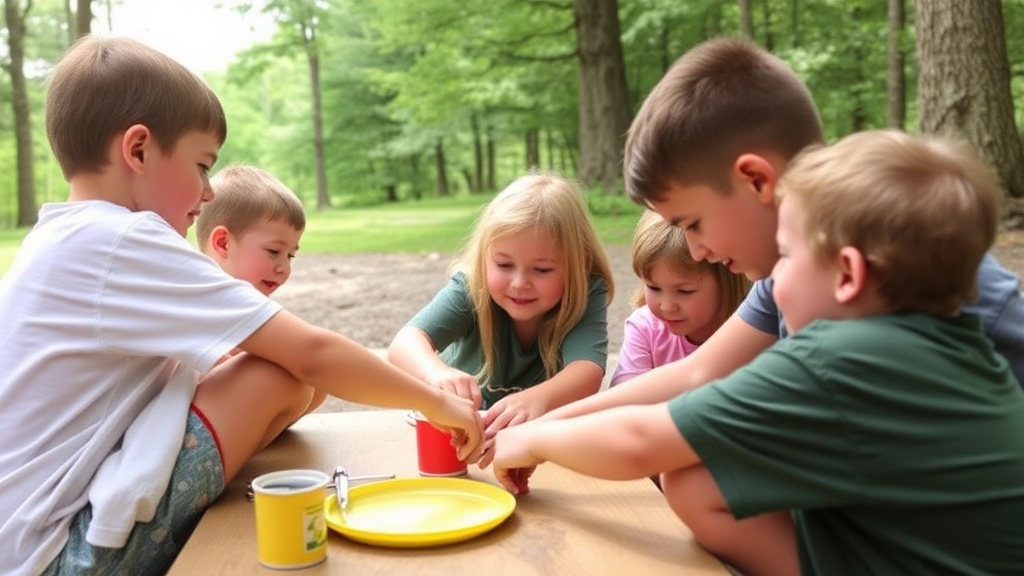
Ever wondered if a long-term summer camp is worth it?
Let’s dive in.
Building Lasting Friendships
Long-term camps are a goldmine for making friends.
Why?
- More time together means deeper connections.
- Shared experiences create strong bonds.
- Overcoming challenges together solidifies friendships.
Think about it.
Kids spend weeks, sometimes months, with the same group.
They laugh, cry, and grow together.
By the end, they’re not just friends—they’re practically family.
Developing Skills
Long-term camps aren’t just about fun.
They’re about growth.
Here’s how:
- Consistent Practice: More time means honing skills.
- Variety of Activities: From arts to sports, kids try it all.
- Expert Guidance: Instructors have more time to teach.
Imagine your child mastering archery or becoming a confident public speaker.
That’s the power of a long-term camp.
Real Stories, Real Impact
Take Tom, for example.
He was shy and struggled with team activities.
After a month at camp, he came back a leader.
Or Sarah, who discovered her passion for painting through extended art sessions.
These are real transformations.
Balancing Fun and Growth
Long-term camps strike a balance.
Kids get the freedom to explore while learning valuable life skills.
It’s not just about keeping them busy.
It’s about meaningful engagement.
Consider This
Still on the fence?
Here are some quick tips:
- Assess Your Child’s Readiness: Are they comfortable being away for long?
- Talk to Other Parents: Get their insights and experiences.
- Visit the Camp: See for yourself what it’s like.
Curious about how long summer camps vary by location and type? Check out our next section for more insights.
Balancing Summer Camp with Family Time
How do you balance summer camp with family time?
That’s the million-dollar question, right? You’ve got a kid who’s super excited about summer camp, but you’re also trying to make sure you get some quality family time. It can feel like you’re walking a tightrope. So, let’s break it down.
Why Balance is Important
First off, why is balancing summer camp with family time even a big deal? Well, summer is that golden period where you can create lasting family memories. Whether it’s a beach trip, a backyard BBQ, or just lazy afternoons playing board games, these moments are priceless. But summer camp also offers unique experiences that can help your child grow in ways they might not at home.
Tips for Striking the Perfect Balance
Balancing the two doesn’t have to be a headache. Here are some practical tips:
- Plan Ahead: Look at the camp schedule and your family’s summer plans. Maybe your kid can go to camp for a week or two and then spend the rest of the summer with the family.
- Choose the Right Camp Duration: Short-term camps (1-2 weeks) are great if you want to ensure plenty of family time. Long-term camps (4+ weeks) might be better if your kid is older and more independent.
- Stay Connected: Even if your child is away at camp, technology makes it easy to stay in touch. Schedule regular calls or video chats to keep the family bond strong.
- Family Weekends: Some camps offer family weekends where you can visit and participate in camp activities. This can be a fun way to stay involved.
- Post-Camp Family Time: Plan some special family activities for when your child returns from camp. This gives them something to look forward to and helps reintegrate them into family life.
Real-Life Example
One family I know had a great system. They sent their daughter to a two-week camp at the beginning of the summer. This gave her a taste of independence and new experiences. Then, they spent the rest of the summer on family trips and activities. The result? Their daughter got the best of both worldsânew friends and skills from camp, and unforgettable family memories.
The Long-Term Benefits
Balancing summer camp with family time isn’t just about the immediate summer. It’s about setting a precedent. Your child learns that it’s possible to have enriching experiences outside the home while still valuing family time. This balance can teach them to manage their own time and priorities as they grow older.
What About You?
So, what’s your take? How do you plan to balance summer camp and family time? Share your thoughts and experiences. After all, there’s no one-size-fits-all answer, but hearing different perspectives can give you some fresh ideas.
Financial Considerations: Cost vs. Camp Length
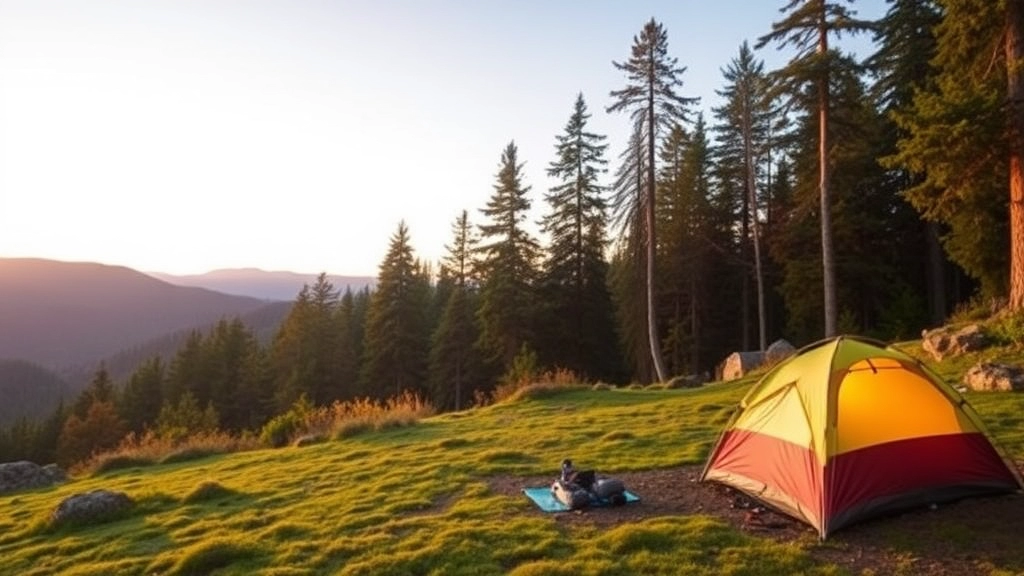
Alright, let’s get real here.
Summer camps can be a blast, but they can also burn a hole in your pocket. So, how do you balance cost vs. camp length? Let’s break it down.
Why Does Camp Length Matter?
First off, longer camps cost more. That’s a no-brainer. But you’re not just paying for more days. You’re paying for more activities, more meals, and more staff time.
Short-Term Camps: The Budget-Friendly Option
If you’re looking to save some cash, short-term camps are a solid choice. They give your kid a taste of camp life without the hefty price tag. Plus, they’re perfect for first-timers who might not be ready for a long haul.
Long-Term Camps: Worth the Investment?
On the flip side, long-term camps offer more bang for your buck. Your child gets to dive deeper into activities, form stronger friendships, and develop more skills. But yeah, they come with a steeper price.
Breaking Down the Costs
Here’s a quick cost breakdown to help you out:
- Short-Term Camp (1-2 weeks): £200-£600
- Medium-Term Camp (3-4 weeks): £600-£1,200
- Long-Term Camp (5+ weeks): £1,200+
Hidden Costs to Watch Out For
Don’t forget about the extras:
- Travel expenses: Getting to and from camp can add up.
- Gear and supplies: Think sleeping bags, sports equipment, etc.
- Special activities: Some camps charge extra for things like horseback riding or scuba diving.
Real Talk: Is It Worth It?
Ask yourself:
- What’s your budget? Be honest about what you can afford.
- What does your child want? Sometimes a shorter, more affordable camp is just as fulfilling.
- What’s the ROI? Think about the skills and experiences your child will gain.
My Two Cents
If you can swing it, a longer camp can be a game-changer for your kid. But if money’s tight, don’t stress. There are plenty of short-term camps that offer incredible experiences without the financial strain.
Ready to dive deeper? Check out our section on How to Choose the Right Camp Duration for Your Child’s Personality. It’ll help you nail down the perfect camp length for your kid.
Preparing Your Child for an Extended Camp Experience
Preparing your child for an extended camp experience can be a bit daunting, right? You’re probably wondering how to make sure they’re ready for weeks away from home, surrounded by new faces and different routines. Let’s break it down into manageable chunks so you can feel confident about sending your kid off to camp.
Addressing Common Concerns
First, let’s tackle the common worries. Is your child anxious about being away from home? Are you concerned about their ability to adapt to new surroundings? These are valid questions and ones that many parents grapple with.
Communication is Key
Start with open conversations. Talk to your child about what to expect and encourage them to share their feelings. Knowing they can express their fears and excitement can make a huge difference.
Packing Smart
Next up, packing. Make a checklist together. Include essentials like clothes, toiletries, and any comfort items like a favourite stuffed animal or blanket. Don’t forget to label everything!
- Clothing: Enough to last the duration, plus some extras.
- Toiletries: Toothbrush, toothpaste, shampoo, etc.
- Comfort Items: Anything that makes them feel at home.
- Special Gear: If the camp has specific activities like swimming or hiking, pack accordingly.
Building Independence
Fostering independence is crucial. Before camp, give your child responsibilities at home. Simple tasks like making their bed or packing their lunch can boost their confidence. The goal is to make them feel capable of handling camp life.
Practicing Social Skills
If your child is shy, practice social skills beforehand. Role-play different scenarios they might encounter at camp. This can help them feel more comfortable initiating conversations and making friends.
Health and Safety
Don’t forget about health and safety. Ensure they’re up-to-date on vaccinations and have any necessary medications. Give them a rundown on basic camp safety, like staying hydrated and using sunscreen.
Staying Connected
Staying connected is important, but it’s a balancing act. Camps often have rules about phone usage, so find out what’s allowed. Set up a schedule for letters or emails if possible. It gives your child something to look forward to and eases homesickness.
Real Stories, Real Prep
Let me share a quick story. My buddy’s kid, Jamie, was super nervous about going to camp for the first time. They did all the prepâtalked about what to expect, packed together, practiced independence. Jamie even learned how to introduce himself and ask questions to make new friends. By the time camp rolled around, he was still nervous but way more prepared. And guess what? He came back with stories of new friends and adventures.
For more tips on making your child’s camp experience successful, check out our Summer Camp Checklist: Essential Packing Guide and learn how to build the skills for summer camp success.
How to Choose the Right Camp Duration for Your Child’s Personality
Choosing the right camp duration for your child can feel like a puzzle.
What’s the sweet spot?
Too short, and they might not get the full experience. Too long, and they could end up homesick.
Here’s how to nail it:
Understand Your Child’s Personality
First off, you need to know your kid. Are they adventurous or a bit more reserved? Do they thrive in new environments, or do they need time to adjust?
Adventurous Kids:
- Longer Camps: These kids usually thrive in longer camps. They love the challenge and the chance to make new friends.
- More Activities: Look for camps with a variety of activities to keep them engaged.
Reserved Kids:
- Shorter Camps: Start with shorter camps. Let them get a taste of the camp life without overwhelming them.
- Familiar Environment: Choose camps closer to home or where they know other kids.
Age Matters
Younger kids often do better with shorter camps. Older kids can handle longer durations.
Ages 6-9:
- 1-2 Weeks: This is a good starting point. It’s long enough to get the camp experience but short enough to not feel too far from home.
Ages 10-12:
- 2-4 Weeks: They can handle a bit more. This age group starts building deeper friendships and skills.
Teens:
- 4+ Weeks: Teens are usually ready for the full camp experience. They benefit from the extended time to develop skills and relationships.
Trial Runs
Still unsure? Do a trial run.
- Day Camps: Start with day camps to see how they cope.
- Weekend Camps: Try weekend camps for a short, immersive experience.
Talk to Them
Don’t make the decision solo. Sit down and chat with your child about their preferences.
Questions to Ask:
- What activities interest you?
- How do you feel about being away from home?
- Do you want to go with friends or make new ones?
Mix It Up
If your child is on the fence, consider mixing it up.
- Combination Camps: Some camps offer a mix of day and overnight options.
- Multiple Camps: Split the summer between different camps to keep things fresh.
Real Stories
Let me share a quick story. My nephew, Tim, was super shy. We started him on a one-week camp. He loved it and begged for a longer stay the next year. Now, he’s a camp pro!
Final Thoughts
Choosing the right camp duration isn’t a one-size-fits-all deal.
Understand your child’s personality, consider their age, and don’t be afraid to start small.
The goal is to make sure they have a blast and grow from the experience.
If you’re looking for more ideas on how to keep your child engaged, check out these fun summer camp activities for all ages. And for those who are planning to organize a camp, don’t miss our effective summer camp marketing strategies to make your camp a hit!
FAQs on Summer Camp Duration
How long is a typical summer camp session?
Summer camp sessions can vary greatly in length. They generally range from one week to several months, depending on the camp’s program and focus.
What are the benefits of short-term summer camps?
Short-term camps are great for first-time campers, as they offer a gentle introduction to camp life. They also help reduce homesickness, fit into busy schedules, and are usually more cost-effective.
Why might a long-term summer camp be a better choice?
Long-term camps provide opportunities for deeper connections, skill-building, and fostering independence. They offer an immersive experience that allows children to fully absorb the camp culture.
How do I decide between a short-term and a long-term camp for my child?
Consider your child’s personality, readiness to be away from home, and your family’s summer plans. Short camps are good for testing the waters, while long camps are ideal for more in-depth experiences.
Are short-term camps more affordable than long-term camps?
Yes, short-term camps are generally more affordable. They offer the benefits of camp without the higher costs associated with longer stays.
Can my child still build strong friendships in a short-term camp?
While long-term camps offer more time for deeper connections, short-term camps can still foster meaningful friendships through shared experiences and activities.
What should I consider when choosing a camp based on cost?
Balance the cost with the length of the camp, the variety of activities offered, and any additional expenses like travel and gear. Determine what you can afford and what will provide the best experience for your child.
How can I prepare my child for their first camp experience?
Start with a short-term camp, choose a local option, discuss camp activities beforehand, and if possible, visit the camp before signing up. These steps can ease your child into the camp experience.
What are some hidden costs associated with summer camps?
Hidden costs can include travel expenses, gear and supplies, and fees for special activities. It’s important to factor these into your budget when planning for camp.
Is it worth investing in a long-term camp?
If your budget allows, a long-term camp can be highly beneficial for your child’s development, offering extensive opportunities for learning and personal growth. However, short-term camps can also provide valuable experiences without the financial strain.
References
-
Short vs. Long Summer Camp: What’s Best for Your Child?
-
Summer Camp Guide: Short vs. Long Sessions
-
Short-Term vs. Long-Term Summer Camps: Pros and Cons

